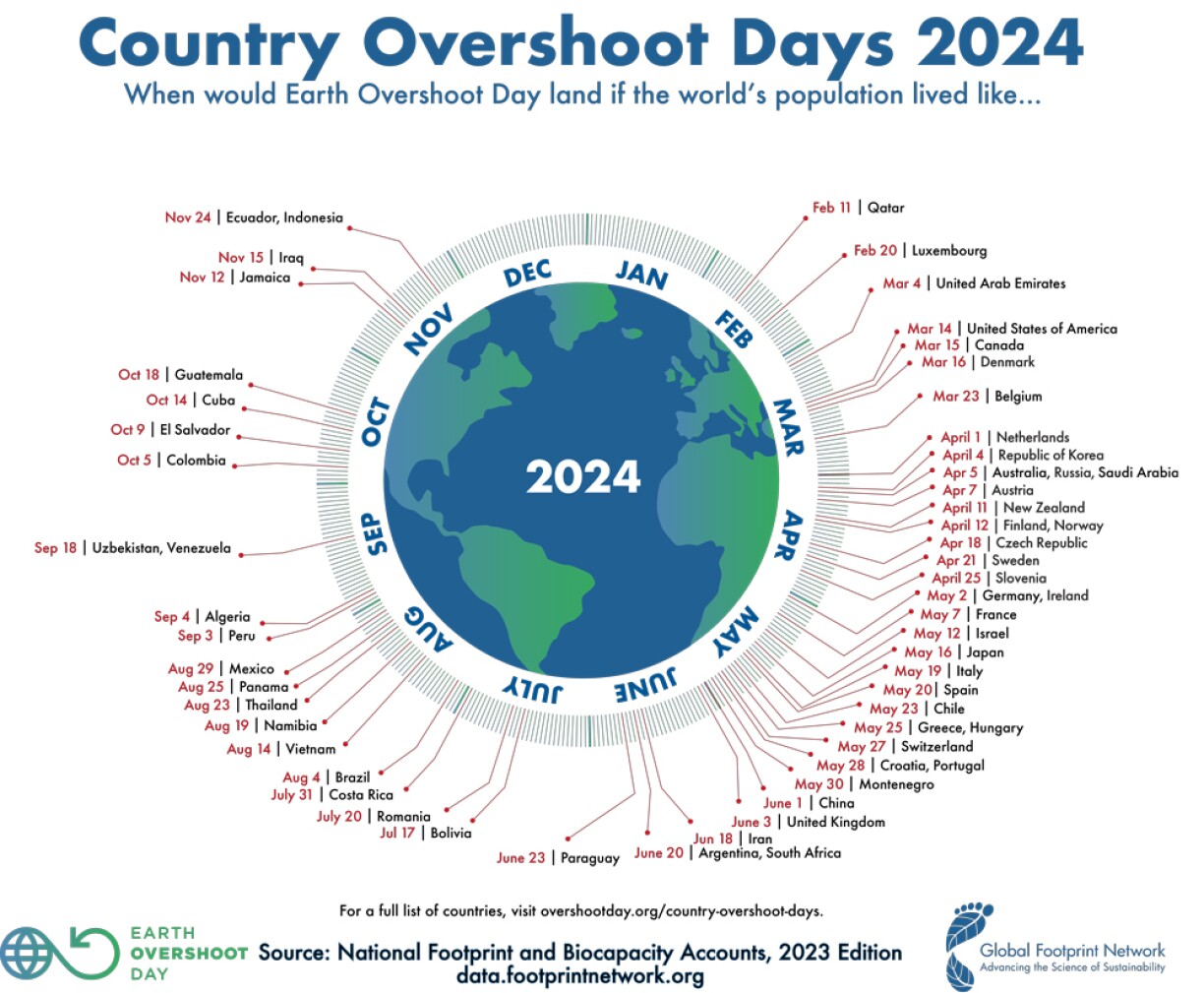
This year’s result is slightly better - although still very poor - compared to 2023, when Overshoot Day was marked on 14 February, an improvement of six days.
But there is little to celebrate, as Luxembourg remains a ‘European champion’ in overusing resources. Qatar leads the list.
In 2023, the NGO Global Footprint Network estimated that if all of humanity consumed as much as Luxembourg, the planet’s resources would be completely exhausted by this time, and it would take seven planets to meet everyone’s needs.

The Consumer Protection Department recognises the date, and despite the progress says it “remains truly insufficient”. It calls on people to eat less meat, more seasonal fruit and vegetables, purchasing and reusing second-hand and repairable objects, and taking public transport.
“The climate emergency requires us to find the necessary resources to support all of society,” says Frédéric Meys, campaign manager at Greenpeace Luxembourg.
As Luxembourg has “never created as much wealth as today”, the organisation calls on the government to invest part of this wealth into “accelerating the energy transition”.
To achieve this estimate, the NGO calculates the country’s ecological footprint and then compares it to its biological capacity.
As a way to illustrate, if the country can produce one tonne of wood per year, but its population consumes ten tonnes, then its ecological footprint in this area is very high. Conversely, if the country produces ten tonnes of wood and its population consumes only one tonne, the deficit disappears.

In 2022, the global overshoot day occurred on 28 July, and was on 2 August in 2023, thus also heading in the right direction. But not only Luxembourg is considered a poor European performer, the same applies to Denmark (16 March), Belgium (23 March), Netherlands (1 April), Austria (7 April) and Germany and Ireland (2 May).
Although the overshoot day is convenient for comparing countries, its method of calculation is debated.
Firstly, because the data used comes from the United Nations. They are reliable, but not updated very quickly. The latest ones used for Luxembourg date back to 2019. To obtain the 2024 result, the NGO is then obliged to produce an estimate.
The other limitation is the nature of Luxembourg: the Grand Duchy is a small country and its results are influenced by its neighbours.
The consumption of cross-border commuters is obviously taken into account in its ecological footprint, calculated per capita. But, since they are not residing in Luxembourg, cross-border commuters accentuate the country’s poor ecological result as much as they improve the Grand Duchy’s GDP. Luxembourg is also home to Cargolux, a major economic flagship.
However, between the coronavirus pandemic, local measures (increase in solar panels and other solar energy sources, implementation of the carbon tax, free public transport, renewal of the vehicle fleet, etc.), the calculation does not do justice to certain Luxembourg efforts. The Higher Council for Sustainable Development estimated a few years ago that the result was exaggerated.
Our colleagues from RTL Infos explained this in a video last year (in French):